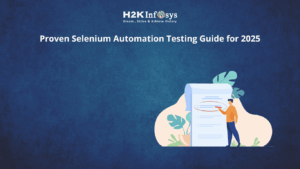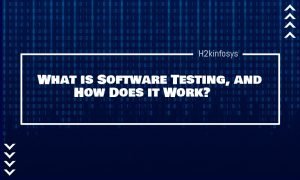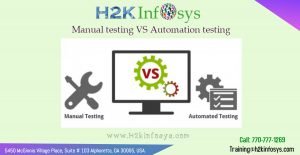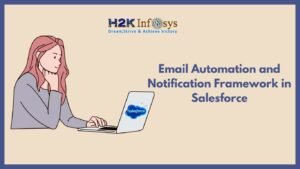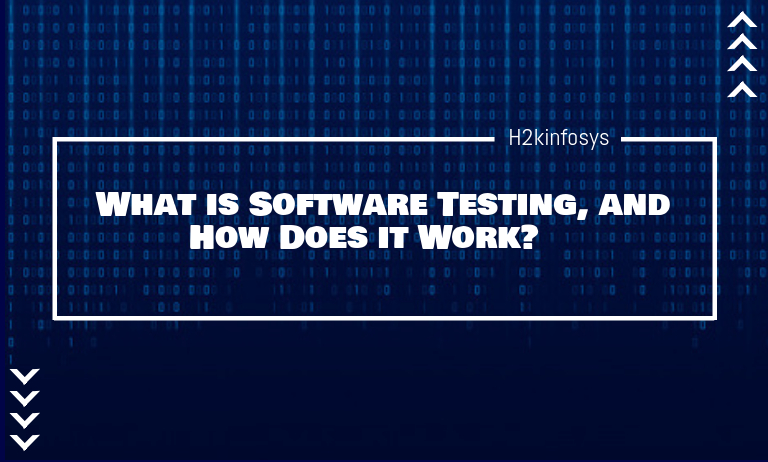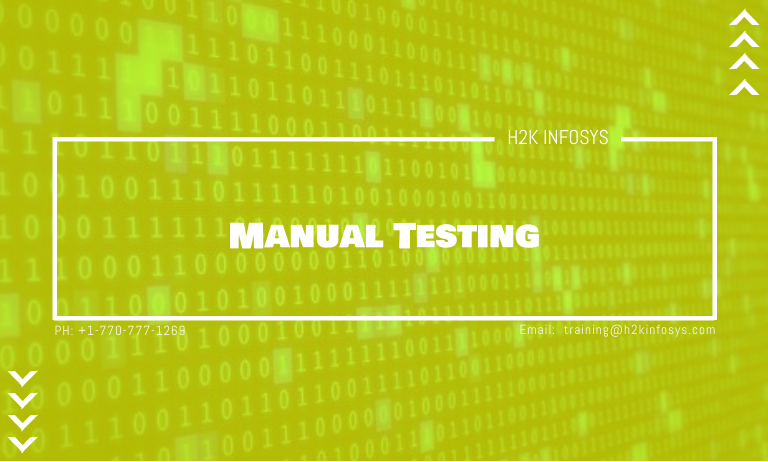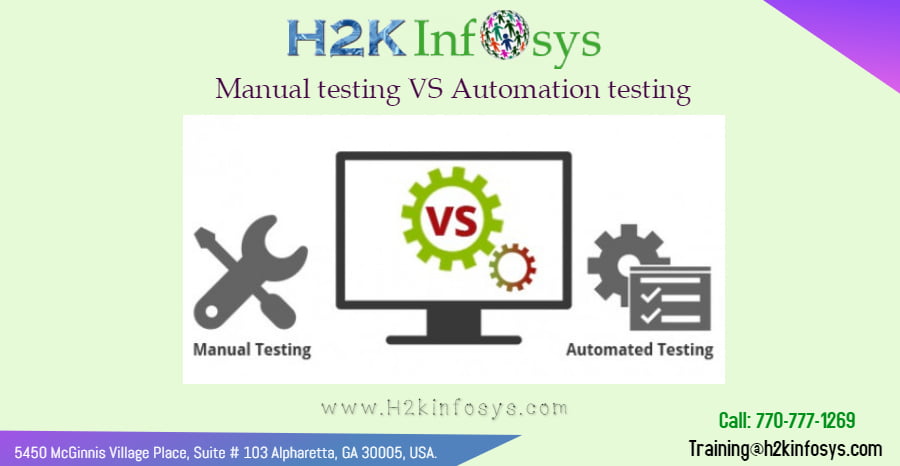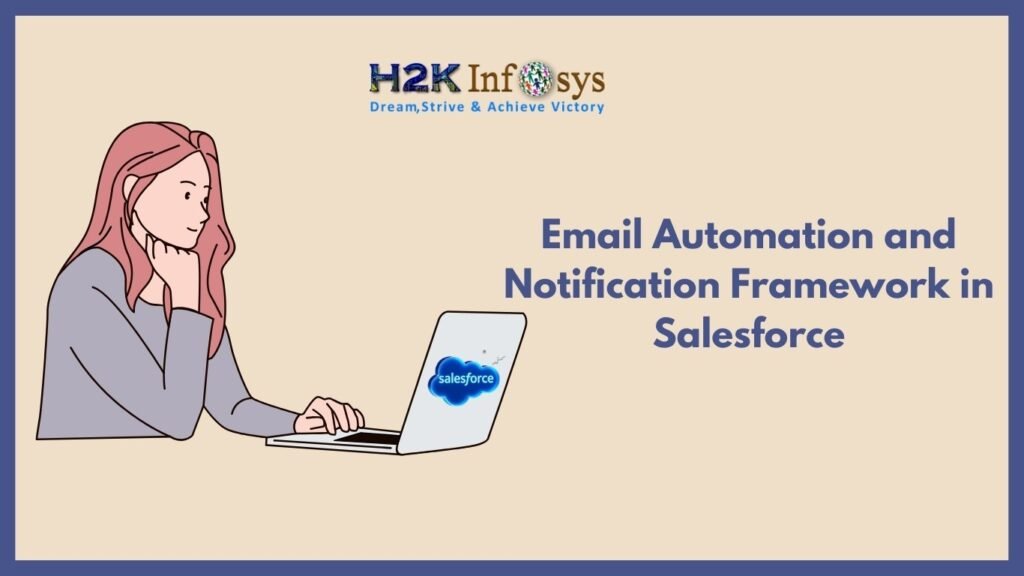Cloud Test automation is considered as testing the cloud based applications as we will be using all the resources that are available in the cloud. It means any element like hardware, software and infrastructure is necessary to do all the tests are available in cloud. Cloud testing needs an end-end solution that transforms the way testing is done and will help an organization to gain a competitiveness by reducing the cost of testing without impacting mission-critical applications.
By using cloud computing services for testing, organizations can significantly reduce provisioning time, as test servers are available on demand. This ensures that unused servers do not sit idle, leading to more efficient resource utilization and cost savings. Additionally, for those looking to strengthen their test automation skills, enrolling in a Selenium course can be highly beneficial. Such courses provide in-depth knowledge on creating and managing automated test scripts, integrating them with cloud-based platforms, and optimizing test execution workflows. As a result, leveraging cloud computing services for testing alongside Selenium expertise allows teams to enhance test coverage, speed, and overall application quality.
What Is Cloud Test Automation?

Cloud Test automation is the process of running automated test scripts on cloud-based infrastructure. It eliminates the need for maintaining in-house servers and testing environments by offering scalable, on-demand resources accessible via the internet. This modern approach allows testers to simulate various environments, browsers, and devices without significant hardware investments.
The primary advantage of Cloud Test automation is its flexibility and scalability. Testing teams can execute tests in parallel across different configurations, reducing the overall testing time and ensuring a higher level of software quality assurance.
Introduction to Selenium
Selenium is one of the most widely adopted tools for web application automation. It supports multiple programming languages, including Java, Python, C#, Ruby, and JavaScript, making it highly versatile for developers and QA engineers. Selenium provides several components, such as:
- Selenium WebDriver: Automates browsers by directly communicating with them.
- Selenium IDE: A browser plugin for record-and-playback test creation.
- Selenium Grid: Enables parallel test execution across multiple machines and environments.
Integrating Selenium with Cloud Test automation solutions allows for more extensive, scalable, and efficient testing practices.
Benefits of Cloud Test Automation Using Selenium
Implementing Cloud Test automation with Selenium offers several compelling benefits:
1. Scalability
Cloud platforms can easily scale up or down based on testing requirements. Whether a project demands testing on ten browsers or a hundred, Cloud Test automation ensures resources are readily available.
2. Cost-Effectiveness
By moving testing infrastructure to the cloud, companies save on hardware, maintenance, and operational costs. Cloud Test automation operates on a pay-as-you-go model, which means you only pay for what you use.
3. Access to a Wide Range of Environments
Testing teams often face challenges in covering various browsers, devices, and operating systems. Cloud Test automation platforms provide instant access to numerous environments, improving test coverage and reliability.
4. Faster Time-to-Market
Parallel testing capabilities reduce the time required to validate applications. Cloud Test automation ensures quicker feedback loops, enabling faster releases without compromising quality.
5. Enhanced Collaboration
Since cloud-based platforms are accessible from anywhere, Cloud Test automation supports geographically distributed teams. Testers, developers, and stakeholders can collaborate in real-time, streamlining workflows and decision-making processes.
Popular Cloud Test Automation Platforms Compatible with Selenium
Several cloud platforms seamlessly integrate with Selenium to offer robust Cloud Test automation solutions:
1. BrowserStack

BrowserStack is a popular cloud testing platform that provides instant access to real devices and browsers. It supports Selenium test automation and allows parallel testing across multiple environments.
2. Sauce Labs
Sauce Labs offers a scalable cloud infrastructure for automated testing. It supports Selenium, Appium, and other frameworks, enabling teams to run tests on over 900 browser and OS combinations.
3. LambdaTest
LambdaTest provides cross-browser compatibility testing in the cloud. It integrates well with Selenium, allowing users to run parallel tests across different browsers and operating systems.
How to Set Up Cloud Test Automation with Selenium
Setting up Cloud Test automation using Selenium involves a few essential steps:
Step 1: Choose a Cloud Platform
Select a suitable cloud platform based on your project requirements, budget, and preferred integrations.
Step 2: Integrate Selenium Scripts
Modify your Selenium test scripts to connect with the cloud platform’s API. This typically involves updating the WebDriver URL to point to the cloud’s remote WebDriver.
Step 3: Configure Test Environments
Set up desired capabilities, such as browser version, operating system, screen resolution, and device configurations. Most Cloud Test automation platforms provide user-friendly dashboards for this.
Step 4: Execute and Monitor Tests
Run your Selenium tests in the cloud and monitor results through real-time dashboards, logs, and screenshots provided by the platform.
Challenges and Considerations in Cloud Test Automation
While Cloud Test automation offers numerous benefits, it also comes with certain challenges:
- Data Security: Sensitive data must be protected when tests are executed on third-party cloud platforms.
- Network Dependency: Reliable internet connectivity is crucial for seamless Cloud Test automation.
- Complex Test Environments: Managing multiple parallel test configurations can become complex without proper strategies.
Overcoming these challenges requires careful planning, choosing reputable cloud service providers, and implementing security best practices.
The Future of Cloud Test Automation
The future of Cloud Test automation looks promising, with advancements in AI and machine learning poised to revolutionize testing processes. Intelligent automation will soon predict potential failures, suggest test cases, and optimize test execution strategies. Integration with CI/CD pipelines will become more seamless, making Cloud Test automation an essential component of modern DevOps practices.
Why we consider selenium cloud testing?
It is called as cloud testing tools are having flexibility and perfection. It is adaptable with a wide range of browsers and also provides a good flexibility to provide many test scripts. Selenium gives a strong support to a variety of programming languages that include C#, Java, python and also ruby.
Benefits of Selenium testing tool:
- Cost-effective:Its an open source tool.
- Language-Many languages like Java,Ruby,python and C# are supported.
- Browser-That supports multiple browsers like IE, Mozilla, opera, chrome and safari which will support cross browser testing and can be easily integrated into the newly launched browsers.
- Framework-It assists numerous frameworks like Junit, TestNG, Bromine which makes the automation robust and can develop its own framework.
- Operating system-It also supports many operating systems like windows, Mac.
- Time-saving-All with the help of selenium grid,parallel execution of the test cases that can be done.
Cloud Automation testing using Selenium:

Software applications are web based and also with cloud infrastructure, as they are gaining prominence. They are mostly used cloud servers. Selenium is the most widely used open source solution that meets the requirements of the testing project. Cloud automation using Selenium will be successfully used with the cloud services. Testing the web apps and across the multiple browsers and platforms would be possible. Selenium interacts with web browsers to test the actions, inputs and also expected outcomes and thereby it improves devices and platform coverage.
VOLANSYS Automation Framework for Cloud Testing:
There is an automation framework, which is a strategy for automation. It has a structured path of obtaining quality work with quantity and effectiveness.There are more predefined frameworks in selenium like JUnit, TestNG, NGUnit.
VOLANSYS will carry out a comprehensive analysis of many different selenium automation frameworks that can be found. And none offered a complete benefit. VOLANSYS will have a developed data driven framework to provide an end-end solution for cloud selenium automation testing.
VOLANSYS Selenium data driven framework is an implemented version for the modularisation and abstraction layer.This is purely an excel based automation framework having of 3 layers.
- External layer(Test case layer)
- Application Function layer(It consists of application-related functions)
- Framework Layer(It consists of core frameworks functions)
Each and every test case exists in the external layer and call the function from Application Function Layer and it will invoke the framework layer function. This framework is excel based and every possible test cases and test data will exist in a single excel file which makes this framework easier to manage.
We have integrated this VSDDF with the continuous integration tool Jenkins and also source code management tool Bit Bucket(Git).
Conclusion
Cloud Test automation using Selenium is a game-changer for organizations seeking faster, scalable, and cost-effective testing solutions. By leveraging cloud infrastructure and Selenium’s robust automation capabilities, teams can ensure high-quality software releases in a competitive digital market. Additionally, professionals aiming to advance in this field can greatly benefit from pursuing a Selenium certification, which validates their expertise in automation frameworks, test strategy design, and cloud-based integration.






